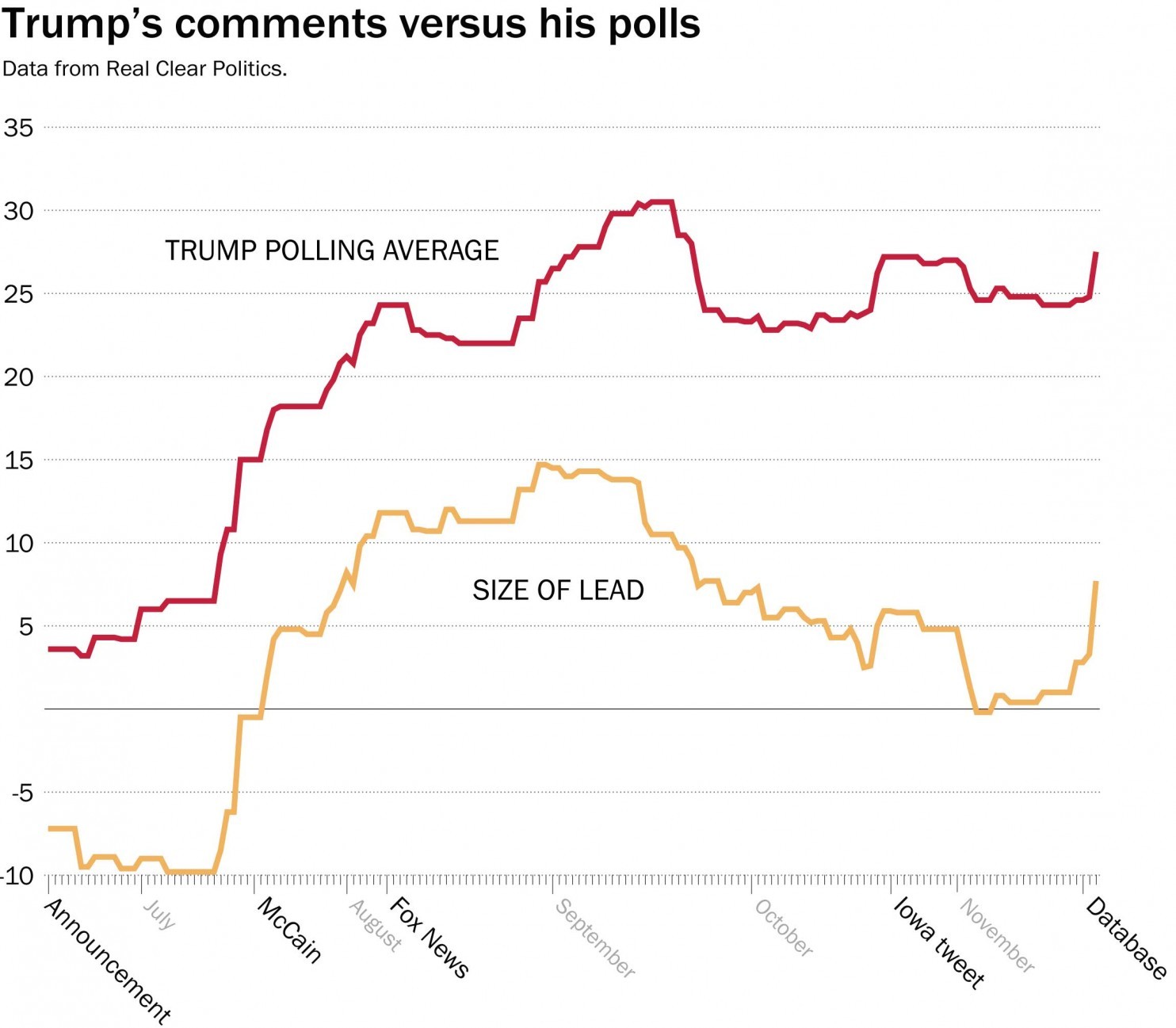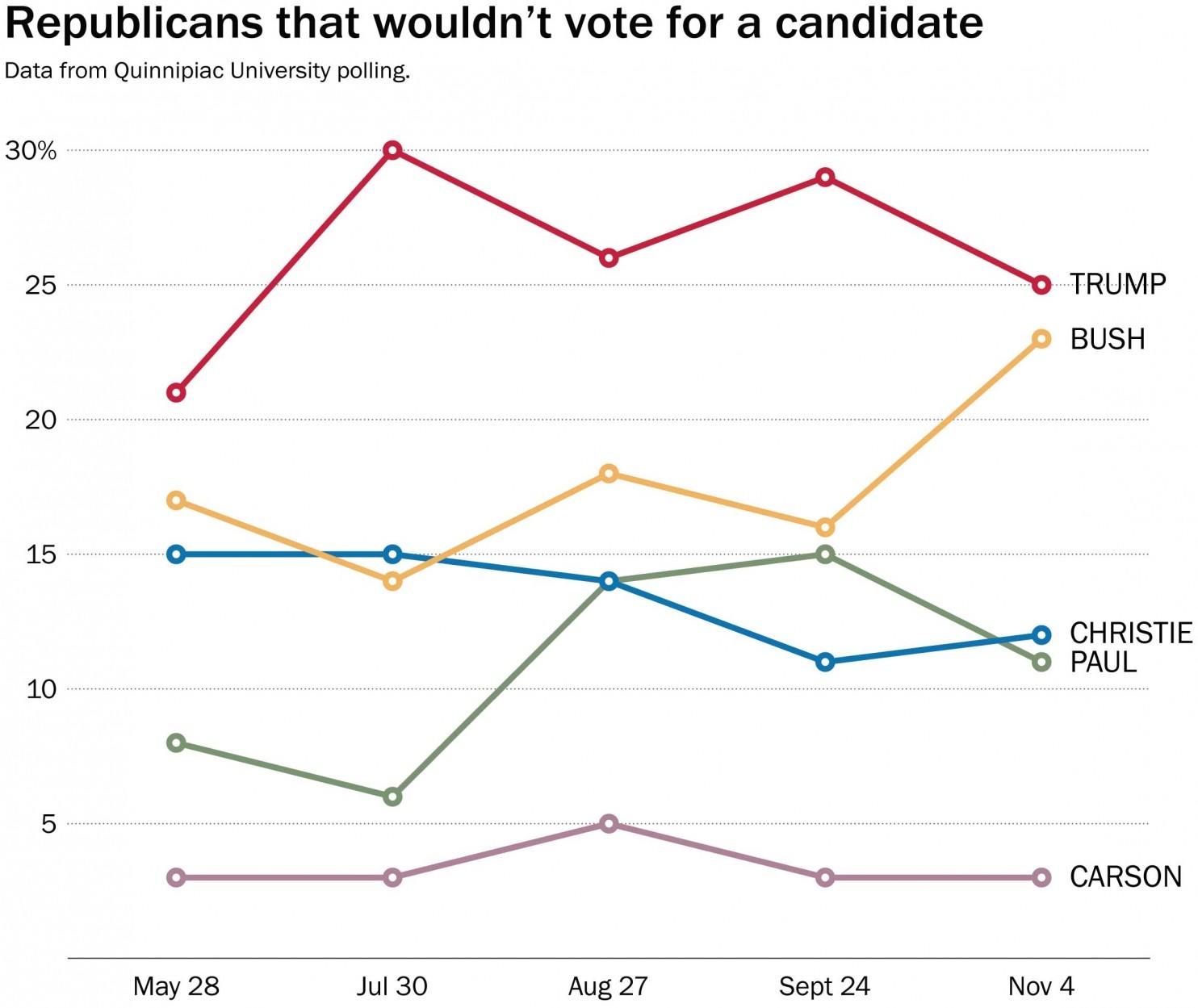Donald Trump hadn't said 300 words during his announcement speech before he called Mexican immigrants rapists. Even before that, he'd already made fun of his sweaty opponents and President Obama. But by word 300, he'd already made the comment that prompted a backlash from Univision — a backlash that drew new attention to his hard-line stance on immigration and, by extension, moved him into first place in the polls.
Trump mocked Vietnam veteran John McCain's war record. He made a comment about Fox News's Megyn Kelly that was widely interpreted as referring to her menstruation. He retweeted a joke about Iowans, following it up by asking how stupid the voters in the state were. He endorsed a database to track Muslims and, just this weekend, appeared to mock a reporter with a disability. And he is still the Republican front-runner.

There's really no correlation between the incidents above and Trump's poll numbers. His lead did start to slip a bit in September and October -- but that was because Ben Carson was gaining ground more than it was because Trump was faltering.
But that's Trump's core base of support, the people who polling has repeatedly shown are solidly for Trump come-what-may. Isn't it possible that Trump has turned an increasing number of people off over the course of the campaign?
It's possible -- but that doesn't seem to be happening either.
Quinnipiac University has regularly polled Republican voters, each time asking if there were any candidates who the voter simply refused to support. Trump's always the candidate who has the highest number of people saying they wouldn't back him -- but that number hasn't increased consistently at all. In fact, in Quinnipiac's most recent poll at the beginning of this month, Donald Trump had only slightly more people saying they'd never vote for him than people who said that about Jeb Bush.

Bush, of course, hasn't said anything nearly as objectively rude as what Trump has said. Instead, he's disliked by a lot of Republican voters who disagree with his policies and politics. In July, Trump was viewed favorably by 50 percent of Republican voters, versus 33 percent who viewed him unfavorably. Earlier this month, Trump's numbers were 63 and 30 -- while Bush was viewed unfavorably by more Republicans than he is favorably.
It's certainly possible that Trump will say or do something that finally turns most Republicans against him. But by now, it seems unlikely. Trump has literally called voters stupid and seen his poll numbers rise. By now, mocking or insulting people of whom voters are already skeptical seems like a pretty safe bet.


